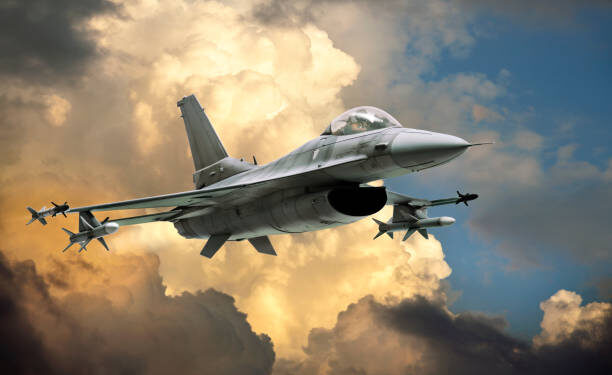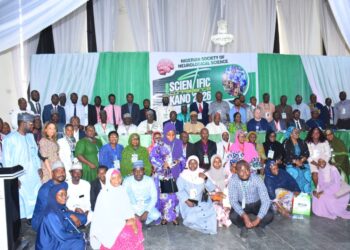Nigeria to acquire 24 fighter jets from Italy’s Leonardo
Nigeria plans to acquire 24 fighter jets from Italy’s Leonardo to modernize its fleet and bolster its air force.
Air force spokesperson Air Vice Marshal Edward Gabkwet revealed this on Friday.
The aircraft will arrive the country in four batches of six jets each, the air force said. Africa’s most populous nation will receive the first six M-346 fighter aircraft before the end of the year, Gabkwet said in a statement.
The news followed a visit by Claudio Sabatino, Leonardo vice president, to Nigeria’s air force chief in Abuja on Wednesday.
Leonardo will provide a minimum of 25 years maintenance support, the air force statement said.
Nigeria is trying to boost its ability to combat insurgency especially in the northeast of the country where Boko Haram militants and the Islamic State regional affiliate is active. Also kidnapping and banditry is rife across the country.
The importance of this acquisition cannot be overstated, as it not only addresses immediate security concerns but also sets the stage for long-term strategic planning and development.
Modernizing Nigeria’s Defense Infrastructure:
Nigeria, as a regional powerhouse in West Africa, faces a myriad of security threats ranging from insurgency and terrorism to maritime piracy and transnational crime. In light of these challenges, modernizing the country’s defense infrastructure becomes paramount. The acquisition of state-of-the-art fighter jets from Leonardo represents a significant leap forward in this endeavor. These advanced aircraft will equip the Nigerian Air Force with enhanced capabilities to conduct aerial surveillance, interdiction operations, and provide air support to ground forces. Moreover, they will enable rapid response to emerging threats, thereby bolstering the nation’s overall security posture.
Strengthening Counterterrorism Efforts:
The fight against terrorism remains a top priority for Nigeria, particularly in the northeastern region where the Boko Haram insurgency has wreaked havoc for years. The newly acquired fighter jets will play a crucial role in intensifying counterterrorism efforts by enabling precision airstrikes against terrorist targets. With their advanced avionics, radar systems, and weapon systems, these aircraft will enhance the Nigerian military’s ability to conduct targeted operations, disrupt terrorist networks, and degrade their capabilities. By depriving insurgent groups of safe havens and operational space, Nigeria can effectively diminish the threat they pose to national security and civilian populations.
Enhancing Border Security and Maritime Patrol:
Nigeria’s vast land and maritime borders present unique security challenges, including smuggling, illegal migration, and maritime piracy. The acquisition of fighter jets will not only strengthen border security but also enhance the country’s maritime patrol capabilities. Equipped with modern sensors and surveillance equipment, these aircraft can conduct reconnaissance missions along the coastline, monitor maritime traffic, and respond swiftly to maritime security incidents. By effectively patrolling its territorial waters and exclusive economic zone, Nigeria can safeguard vital maritime assets, protect commercial shipping lanes, and combat illicit activities at sea.
Promoting Regional Stability and Cooperation:
Nigeria’s investment in defense capabilities extends beyond its borders, as the country plays a pivotal role in promoting regional stability and cooperation in West Africa. By acquiring advanced fighter jets, Nigeria demonstrates its commitment to collective security efforts within the Economic Community of West African States (ECOWAS) and the African Union (AU). These aircraft can be deployed for joint military exercises, peacekeeping operations, and regional security initiatives aimed at addressing common threats and fostering regional integration. Furthermore, by enhancing its defense capabilities, Nigeria can serve as a reliable partner to neighboring countries in times of crisis, reinforcing diplomatic ties and mutual trust among regional allies.






























